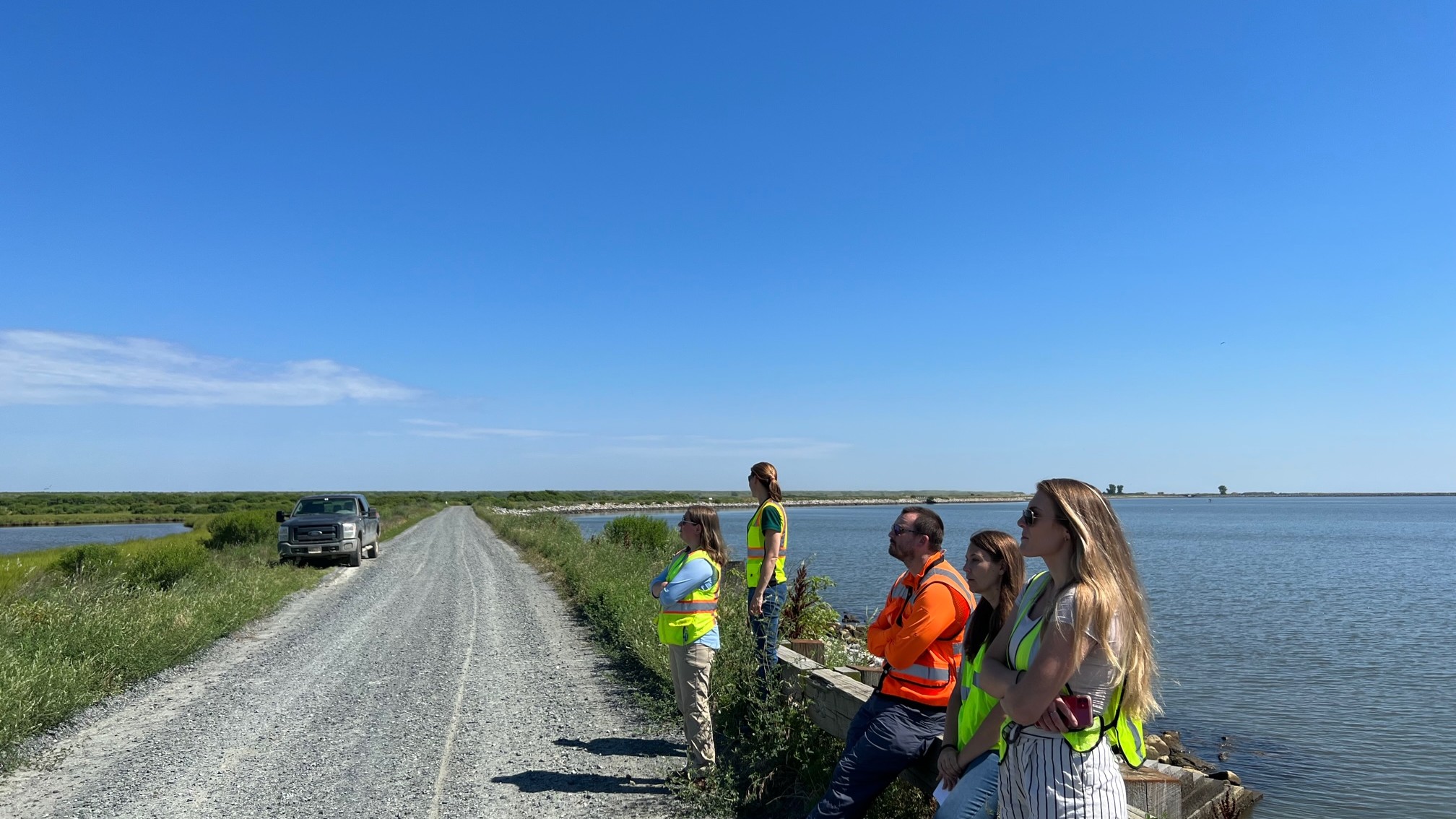A group of climate scientists and lawmakers want NASA and the Biden Administration to extend a space project they said is critical in the fight against global warming.
Launched to space in 2018, the Global Ecosystem Dynamics Investigation (GEDI) is the first of its kind to use lasers to make 3D maps of Earth’s forests, providing insight into how much carbon those forests store and would release if burned. Scientists said that data helps guide policy and funding decisions on how to address greenhouse gas emissions.
But the $94 million project, which was developed through a partnership by the University of Maryland and NASA Goddard Space Flight Center, is set to be decommissioned from the International Space Station in January to make room for other projects. Though it previously received an extension because of what GEDI researchers described as issues outside of their control on the ISS, they’re asking for another year to complete the global carbon map before GEDI is incinerated in space.
GEDI “is giving us a better understanding of how we can plan and predict for the changes that are coming because of climate,” said Ralph Dubayah, a University of Maryland professor and the project’s principal investigator. “If we lose GEDI, we're not going to be able to come up with the most accurate estimate of CO2 concentrations in the atmosphere.”
We're making it easier for you to find stories that matter with our new newsletter — The 4Front. Sign up here and get news that is important for you to your inbox.
Data from the Environmental Protection Agency shows the U.S. produced an average of more than 10 trillion pounds of carbon dioxide annually during the past five years, mostly by burning fossil fuels. Based on the U.S. Forest Service inventory, trees across the U.S. can only absorb about 14% of the nation's CO2 emissions each year.
That number is going down as more trees are lost to wildfire and blight, but Dubayah explained that, if GEDI has mapped such an area, “We can tell you how much CO2 was emitted into the atmosphere.”
The refrigerator-sized device works by taking snapshots of 25-meter circles as it orbits the globe every 90 minutes, using sensors to create maps that show the height and shape of trees. Pairing that information with data on the ground, scientists can create carbon databases that Dubayah said is used by governments and nonprofits alike.
The U.S. Forest Service can use the data, for example, to estimate how much carbon is held in federal forests or to predict forest fires. GEDI information can also show how quickly temperate glaciers are melting, Dubayah said.
The Nature Conservancy’s Peter Ellis said his team of climate scientists uses GEDI’s carbon mapping to help policymakers understand which forests or communities need the most urgent protection.
“Understanding where the threat is is one piece of that, but understanding how much carbon there is, is another really important piece,” said Ellis, the Conservancy’s global director of natural climate solutions science. “If we don't know that carbon part, we can't actually design the important conservation strategies to be effective in fighting climate change and protecting important biodiversity.”
In a statement, a NASA spokesperson said GEDI is among seven Earth science instruments providing “significant information” on the effects of climate change and noted GEDI has previously received an extension to complete its work.
The spokesperson continued: “Given high demand for use of the station, NASA has a commitment to host a new payload that will follow GEDI. However, we continue to look for alternatives for extending the GEDI mission.”
GEDI is set to be replaced by a Department of Defense mission known as STP-H9. The DOD did not respond to News4’s requests for comment on the nature or flexibility of that mission.
Senators Chris Van Hollen and Ben Cardin, both Democrats from Maryland, are among those pushing for NASA to extend the project. In an August letter, also signed by House Majority Leader Steny Hoyer, D-Md., the lawmakers asked NASA Administrator Bill Nelson to “explore potential options to delay GEDI’s decommissioning so that the mission may conclude its work.”
In an interview with News4, Van Hollen said he’s planning a call with Nelson and the other lawmakers to try to find a solution.
“We're going to push very hard, because it doesn't make sense from a taxpayer point of view to invest all this important money in this scientific endeavor and not get the benefit of the results for the American public,” he said.
Some climate activists said it also doesn’t make sense from a policy perspective as the Biden Administration has directed billions towards climate change efforts, including an initiative to plant 1 billion trees to replace those lost in Western forest fires.
It’s also directed the Forest Service and Bureau of Land Management to create an inventory of mature trees on federal land, though a spokesperson for the BLM said the forest service hasn’t decided whether to use GEDI data in that mission.
More broadly, the administration has set goals including reducing greenhouse gas emissions by half compared to 2005 levels by 2030 and having a net-zero emissions economy by 2050.
“This is a decade where people are making huge commitments in terms of carbon removal, and it’s really important we can verify if we’re actually [meeting] those commitments,” said Marcene Mitchell, senior vice president of climate change at the World Wildlife Fund.
Mitchell noted GEDI was never intended to be a permanent fixture in space, but she’s hoping it can remain there until other projects that provide similar data can replace it.
“There's a great deal of uncertainty about how much emissions the forests are able to absorb today and in the future, and that's really important information as we're trying to plan what our path is to reducing emissions,” she said, adding: “Every tool in the toolbox is important, and so it's really critical for us to keep this information going.”
As the January deadline approaches, Dubayah said he’s holding out hope GEDI can carry out its mission to the end.
“You have to just keep fighting to get people to listen to you,” he said.
News4 reached out to the White House for comment and was referred back to NASA.
Correction (Sept. 16, 2022, 11:50 a.m. ET): An earlier version of this story misnamed the NASA laboratory involved in the GEDI project.
Reported and produced by Katie Leslie; shot by Steve Jones, Evan Carr and Lance Ing; and edited by Steve Jones. NBC Bay Area contributed to this report.



